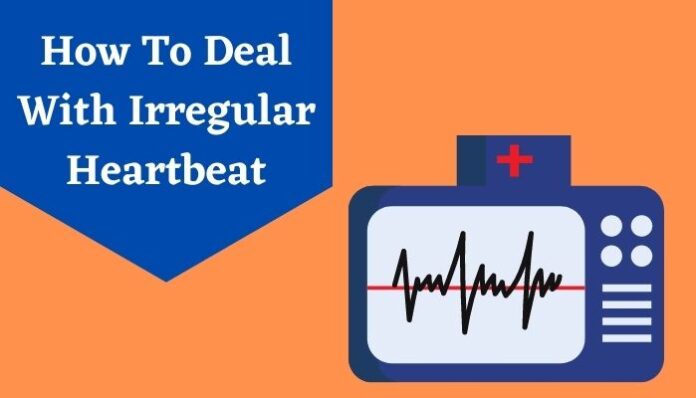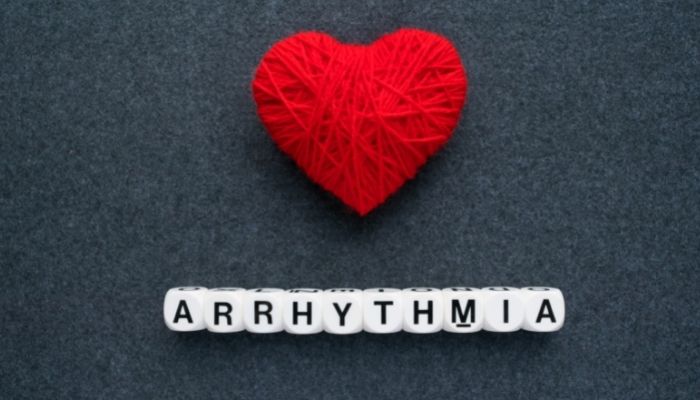Our heart is indeed one of the most important organs of our body that purifies and pumps in our body. A normal heart beats about 72 times in a minute, so when this number goes beyond or below, it could turn into a matter of worry. Irregular heartbeat or arrhythmia can turn fatal in no time, so one needs to be vigilant and see if there are any signs of heart palpitations and try to get rid of this issue at the earliest by detecting the exact cause.
Let us read further to understand all the possible arrhythmia symptoms and how to cure the irregular heartbeat symptoms naturally without any side effects.
What is Arrhythmia or Irregular Heartbeat?
In general terms, arrhythmia is a heart disorder that impacts the rhythm of the heart and the way your heart beats. This irregular heartbeat can either cause the heart to beat faster, slower, earlier, or erratically. All these conditions, in which a heart beats abnormally are a kind of arrhythmia condition. If ignored for long, this condition can be fatal too and damage your brain, lungs, and other vital body organs.What Causes Irregular Heartbeat?
It is important to identify the cause of your irregular heartbeat if you wish to get the right treatment. Arrhythmia can be a result of emotional, physical, and genetic reasons. There could be endless reasons for an irregular heartbeat, so let us check some of them:- High Blood Pressure
- Diabetes
- Thyroid Disorder
- Sleep Apnea
- Electrolyte Imbalance
- Dehydration
- Depression
- Allergies
- Cold
- Certain Medications
Symptoms of Arrhythmia
Following are some of the common symptoms of arrhythmia:- Rapid heartbeat
- Slow heartbeat
- Heart skipping a beat
- A feeling of fluttering in the chest or neck
- Chest pain
- Sweating
- Dizziness
- Fatigue
- Difficulty in breathing
- Fainting or Nausea
Natural Treatments for Heart Arrhythmia Symptoms
Much relief from the arrhythmia symptoms can be expected by trying the following natural treatments:1. Relaxation Techniques
Whether you agree or not, stress is often the main culprit for irregular heartbeat symptoms in a person. So, why not try to get rid of this issue by trying some relaxation techniques like meditation, yoga, breathing exercises, guided imagery, and spending time amidst nature.2. Eliminating Stimulants
Another effective method of dealing with irregular heartbeat symptoms is by eliminating stimulants that alter the way your heart beats. Some common stimulants that trigger issues like arrhythmia are illegal drugs, tobacco products, cold and cough medications, caffeinated beverages, high blood pressure medications, and appetite suppressants.3. Balancing your Electrolyte Intake
Likewise, you can expect some great relief from irregular heartbeat symptoms by balancing electrolyte intake. For those of you who don’t know, electrolytes are those molecules that play a role in transferring electrical signals in our bodies. For this, eat a diet that is rich in sodium, calcium, potassium, and magnesium.4. Calm Your Heartbeat with Vagus Nerve Stimulation
Up next, try stimulating the vagus nerve to calm down your heartbeat. For this, a person can try chanting “Om”, splashing cold water on the face, using a cold towel or ice on the face for some time to control their heartbeat. At the same time, try taking a cold shower or coughing to stimulate your vagus nerve.5. Stay Hydrated
The best and the easiest thing to do to control your heart arrhythmia symptoms is by drinking a lot of healthy fluid and plain water. Staying hydrated by drinking a lot of water helps in dealing with a number of health issues and not just irregular heartbeat symptoms.6. Exercise Regularly
Likewise, make sure to pay attention to your overall health and fitness. For this, you must exercise regularly to ensure good heart health. You need not enroll in a gym for a high-intensity workout, doing light exercises but doing them regularly will help experience relief from arrhythmia signs and symptoms.Medications for Arrhythmia Symptoms
Besides, trying the home remedies to cure arrhythmia, if need be your doctor may prescribe you the following medicines too1. Antiarrhythmic Drugs
Medicines like amiodarone, and propafenone can help you deal with premature heartbeats causing arrhythmia.2. Anticoagulants
Medicines like Warfarin, and rivaroxaban, help to prevent blood clotting that may lead to arrhythmia symptoms.3. Beta-Blockers
Medicines like metoprolol, and acebutolol may slow down your heart rate and offer relief from arrhythmia signs.4. Calcium Channel Blockers
Medicines like diltiazem, and amlodipine can help lower your blood pressure and regulate your heart rate.When to See a Doctor?
It is important to first try to regulate your heartbeats with the above-mentioned natural remedies or treatments. If the condition doesn’t improve at all, don’t delay consulting a doctor. This could be a sign of possible heart disease, anxiety disorder, or thyroid disease. Your doctor will diagnose and detect the underlying cause of arrhythmia and help you recover by suggesting to you what to do and what not to do to regulate your heartbeat.The Bottom Line
There are different types of arrhythmias and most of them are not life-threatening but if it goes unnoticed for long, this disorder can turn fatal. The heartbeat may fluctuate and your heart may pounce faster after a heavy impact exercise workout, but what if it does so without any workout? Such signs should be noticed and every effort should be made to eradicate things and activities that irregulate your heartbeat.Feel free to discuss with your doctor not just the right treatment of arrhythmia but also any supplements or alternative treatments that can be opted to improve the heartbeat and live a normal life.



